Who will set the slogan of "China Libra": central bank, technology giant, banking alliance or multinational organization?
In the context of the Sino-US game, Libra's launch seems to lead the competition further to the battlefield of digital currency.
Recently, Huawei CEO Ren Zhengfei was asked in an interview: Is Libra a signal that American technology companies should keep the world hegemon with the US government? When the US issues digital currency, will it consider Chinese companies or put Chinese currency in their currency baskets?
Ren Zhengfei responded: "China can also issue such a currency. Why should we wait for others to issue it? The power of a country is always stronger than that of an Internet company." It means that China can issue its own Libra.
At an event on July 26, Bai Shuo, the former chief engineer of the Shanghai Stock Exchange, delivered a speech and said that he suggested that China establish an independent system that can compete with Libra.
- After the fourth birthday of Ethereum, where will the next four years go?
- Is it just a coincidence that BAT holds blockchain activities at the same time?
- The Fed’s hawkish rate cuts bitcoin is slow, and the script is ready to start your performance.
Given the significant impact Libra may have on countries' monetary policy, financial stability, and even the international monetary order. At present, all countries regard the national digital currency as the research focus and explore new forms of Libra's national digital currency.
Then who will pick the girders of "China's Libra"?
Central Bank Digital Currency: Piloted Landing
The central bank's digital currency is the first possibility of the "Chinese version of Libra" and the most popular one.
Shortly after Facebook launched the Libra project, the People's Bank of China frequently voiced questions about Libra and the central bank's digital currency. On July 8, Wang Xin, director of the Central Bank Research Bureau, introduced the latest research on Libra, central bank digital currency and digital finance. On July 9, Zhou Xiaochuan, former president of the central bank and president of the China Finance Association, focused on Libra's globalization. The development of the future currency under the situation and the response to the renminbi have been discussed. (The inter-chain pulse "China, the United Kingdom, Britain and France and other eight central banks on Libra's position – the central bank and commercial banks "the sentient beings"" are included in the article)
Inter-chain pulse observation, in fact, the central bank's digital currency research is already in the forefront of the world. As early as 2014, the central bank set up a special research group to issue digital currency; in 2015, the Financial Research Institute established the Internet Finance Research Center; in May 2017, the Central Bank Digital Money Research Institute was officially listed for digital currency issuance and business operations. In-depth research on the framework and key technologies of digital currency; in September 2018, the institute built a trade finance blockchain platform.
Not only that, but the central bank has 78 patents in the field of cryptocurrency and 44 patents related to blockchain technology. At this year's number of fairs, the deputy director of the Central Bank's Digital Money Institute revealed the latest progress: the central bank's blockchain application has actually begun.
Moreover, compared with Libra, which is currently facing regulatory difficulties, the central bank's digital currency was born in the regulatory system. If it is implemented in the future, the resistance at the national level will be even smaller.
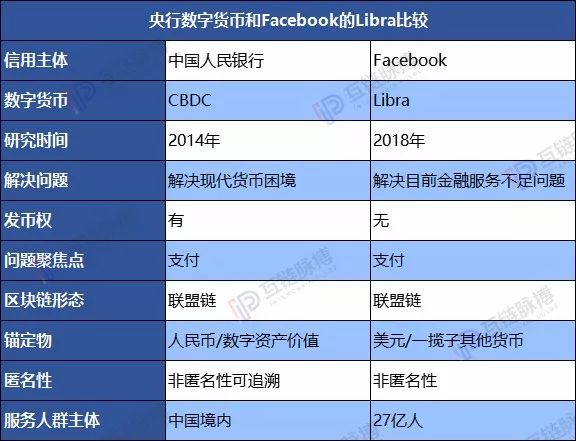
The inter-chain pulse is also a detailed comparison of the central bank's digital currency and Libra in Libra's article, "The White Bank of China's Digital Currency Institute has done a pilot ." The core functions of both focus are payment; the blockchain technology is used as the underlying accounting technology; the alliance chain is adopted. But the starting point is different. The central bank's digital currency is to solve the banknote defect. Compared with the concept of cryptocurrency such as Bitcoin, the central bank's digital currency is actually a “digital legal currency”, which has more currency attributes. Libra is a business. Banking things.
However, at present, if the central bank wants to issue digital currency, it still faces a series of problems such as the failure of China's digital currency laws and regulations system to be perfected, and the general public's perception and understanding of digital currency.
Despite this, the interlinkage pulse has learned that the central bank has made a useful attempt around digital currency. The central bank has piloted the PBCTFP blockchain platform in a small scope. It is reported that four blockchain applications have been set up on this platform, with 26 banks participating, achieving 17,000 businesses and more than 4 billion yuan in business.
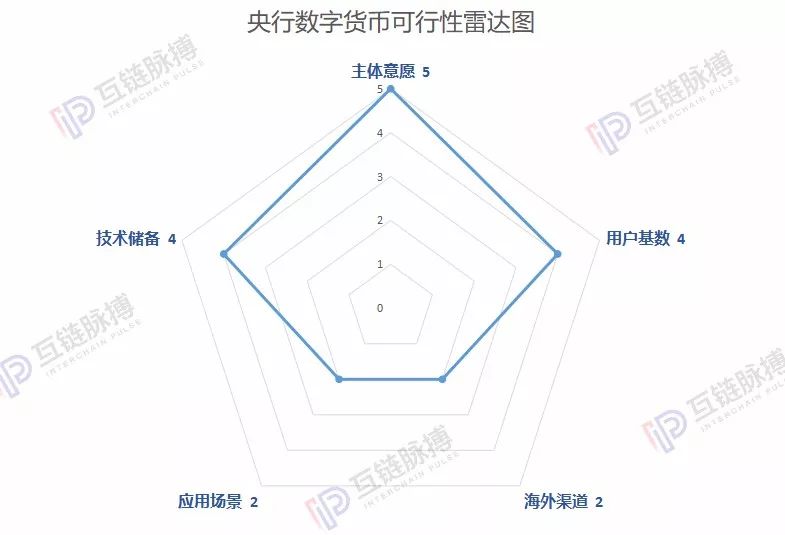
According to the above content, the inter-chain pulse analyzes the central bank's digital currency from the perspectives of the subject's will, user base, overseas channels, application scenarios, and technical reserves, and based on several indexes (inter-chain pulse research) Draw the above picture.
The main body of the central bank’s digital currency issuance is stronger. The original intention of the central bank's digital currency was to reduce the cost of issuing and distributing paper money, and to improve the convenience and transparency of transactions. As the Libra project is announced, and the future may have a certain impact on the financial system of each country. The willingness of the central bank to launch digital currency is particularly strong; in terms of user base, the central bank’s digital currency is based on China’s 1.3 billion population. Although it has a certain gap compared to Facebook’s 2.7 billion users, it is based on the national population as the benchmark. The user base is still relatively large; correspondingly, the central bank's digital currency is more closed than other types of digital currencies, so the index on overseas channels is not high.
According to the information released by central bank officials, the central bank's digital currency adopts a two-tier system, which is further deepened on the basis of the traditional “central bank-commercial bank” dual model. Therefore, the application scenario is between the central bank and the commercial bank, a large number of commercial scenarios, and the central bank's digital currency is not directly involved.
However, the index of its technical strength is relatively high, which can be seen from the number of blockchain patents in China. According to the statistics of the World Intellectual Property Organization, the number of patents in the blockchain of China's central bank is currently ranked first in the global central bank system.
Internet giant alliance: technology is very mature, only look at supervision
After the launch of Libra, Sogou CEO Wang Xiaochuan once said that the blockchain is a three-dimensional integration of commercial politics and technology, not completely decentralized, but by the alliance of enterprises or countries.
He pointed out that in response to Libra, Chinese big companies must form alliances. This has also become the second path of the "Chinese version of Libra".
When Libra was launched, it was claimed that it would cause the Internet giant to suffer a downsizing. At the Libra hearing held some time ago, Libra project leader Marcus even publicly admitted that Libra will compete with Alipay and WeChat payment. This is undoubtedly the introduction of Chinese Internet companies into the arena of digital currency payments.
In fact, in this field, Chinese Internet companies are not inferior. When Libra was launched, Tencent founder Ma Huateng commented on the WeChat circle of friends that “the technology is mature and not difficult. It depends on whether regulation is allowed”.
Prior to this, in June 2018, Ant Financial’s blockchain-based e-wallet cross-border remittance service was launched in Hong Kong. Users of the Hong Kong version of Alipay AlipayHK can use the blockchain technology to send money to the Philippine wallet Gcash. Based on blockchain technology, cross-border remittances can enter the second era.
Huawei, who said that China can issue its own Libra, has also entered the blockchain in 2015.
Therefore, if the policy allows Alibaba, Tencent, Baidu, Huawei and other domestic Internet giants to unite, conduct small-scale, monitorable cryptocurrency attempts in an administrative area outside the country or within the territory. It may push the giants to create cryptocurrency projects that meet regulatory requirements to withstand the risks posed by Libra's official launch and even compete internationally. However, as far as the domestic attitude towards digital currency is concerned, it is still in a state of strong supervision. Therefore, the way of issuing money has yet to be considered by the regulator.
However, the interchain pulse observes another point of view besides sending a token. Yang Dong, deputy dean of the Chinese People's University Law School, wrote an article on the response of Chinese Internet companies to Libra and proposed the concept of "coken". Yang Dong pointed out that Coken is different from token and can express the value of currency-related data and traffic data generated by mobile payment-based technology. The core features of the “Token” that the “common ticket” condensed blockchain ecology relies on: one is “common”, the consensus is reached, and the common wisdom is shared, which is a stock that is truly shared; the second is “ticket”, payment, circulation, distribution , the ticket of the equity.
On this basis, domestic large-scale Internet companies have joined forces to establish a coalition chain system and issue corresponding Cokens to promote the development of China's digital currency.
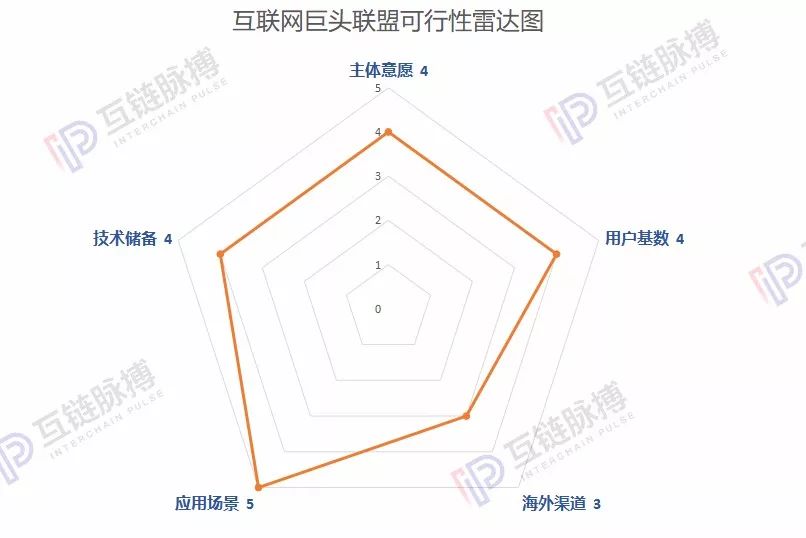
In terms of overseas channels, Internet companies still have a certain gap compared with their native financial companies. Regardless of the application scenarios and technical reserves, Ali began to study the blockchain in 2014. In July 2016, he landed the first application in the blockchain field, and later in finance, public welfare, and traceability. The field has been widely practiced; Tencent established the blockchain team in 2015, and as of August 2018, there have been 40 blockchain patents…
Domestic Banking Alliance: “Cross-border payment + blockchain” is the main area
Libra belongs to the product of technology finance, so its birth, not only the above-mentioned Internet companies, but also the impact on the financial sector such as banks.
As a result, the bank has a greater sense of crisis for Libra's emergence, and the inter-bank alliance has become the third concept of the "Chinese version of Libra" – the digital currency version of UnionPay.
Mutual chain pulse statistics, in fact, banks are the most active institutions in the layout blockchain finance. Most of the major state-owned commercial banks and large-scale joint-stock commercial banks have deployed blockchain applications. As early as 2017, 12 banks have applied blockchain applications in different fields.
The six state-owned banks – Industrial and Commercial Bank, Agricultural Bank, Bank of China, China Construction Bank, Postal Savings Bank and Bank of Communications – began testing the blockchain application several years ago, and some projects have been put into operation. Cross-border payment is the most important application in the blockchain application layout of banking institutions. In the cross-border payment field, the use of blockchain technology can not only speed up cross-border payment transfer, improve efficiency, but also reduce costs and lower the threshold for cross-border payment participants.
Therefore, compared with Libra, domestic banks may not be as good as Facebook in terms of user base, but they still have certain first-mover advantages in the research and development of blockchain technology.
In addition, the form of the banking alliance is just in June when Facebook launched Libra. The Wall Street Journal reported on the joint currency program of 14 international banks represented by UBS. Fourteen large banks and financial institutions from the United States, Europe, and Japan invested a total of £50 million to form a joint venture called Fnality International. Fnality will manage their upcoming cryptocurrency USC and will pass the five major legal currencies of the US dollar, Canadian dollar, British pound, Japanese yen and Euro.
Taking this as an example, under the circumstances of regulatory approval, domestic banks jointly establish a coalition chain system and issue cryptocurrencies of bank alliances. Based on the domestic market, developing international markets will also become a direction worth exploring.
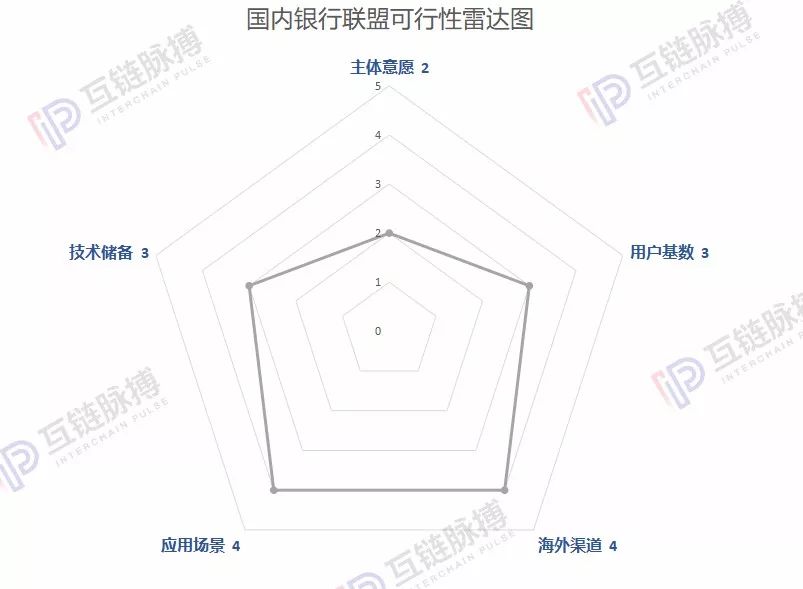
In fact, the above-mentioned domestic Internet enterprise alliances and bank alliances are basically in the same form, but compared with the internal motivation of Internet companies, if banks form alliances to launch "Chinese version of Libra", the more decisive factor is external pressure, which is subjective. Willingness is weak. Banks have a general user base, but based on their own business, there are more overseas channels.
In terms of application scenarios and technical reserves, as mentioned above, most of the banking institutions in China have deployed blockchain applications one after another. The state-owned six major banks started the application testing of blockchains a few years ago. The project has been put into operation.
Taking the Bank of China as an example, its blockchain deployment involves a wide range of applications, including digital wallets, trade finance, housing leasing, public welfare, cross-border payments and digital bills.
Multinational Institutions: Establishing an International Digital Monetary Institution with China as the Leading
Facebook covers 189 countries around the world and has extensive international cooperation resources. Libra can naturally take advantage of the digital finance field, but the Libra white paper shows that most of its members are American companies. If China wants to build a "Chinese version of Libra", it should pay attention to strengthening international coordination and cooperation in the field of digital finance. It is also an idea from the perspective of establishing alliances of transnational and inter-regional institutions.
Earlier, Wang Xin, the director of the Central Bank Research Bureau, pointed out that when Libra and the central bank's digital currency were discussed, China should issue a Chinese voice as soon as possible on the international financial policy platforms such as BIS (BIS) and IMF (International Monetary Fund) to promote digital finance. development of. It is mentioned that the IMF (International Monetary Fund) had previously proposed the issuance of a super-sovereign digital currency.
In April 2018, the AIIB issued a statement saying that there were fraudsters in the name of the AIIB, illegally raising funds for the Chinese people and selling virtual currency "Asian referendum" and other fraudulent acts. “Asian Investment” is an illegal fund-raising act, but it provides a new way for multinational organizations to develop cryptocurrencies.
The official organization of China should act as soon as possible. For example, similar to the China Initiative, the leading Belt and Road, and the AIIB, a Chinese-initiated, multinational, cross-regional alliance led by China will issue digital currencies that anchor the renminbi and other multinational currencies. With the strong alliance between countries and the country's population base, the challenges brought by Libra are met.
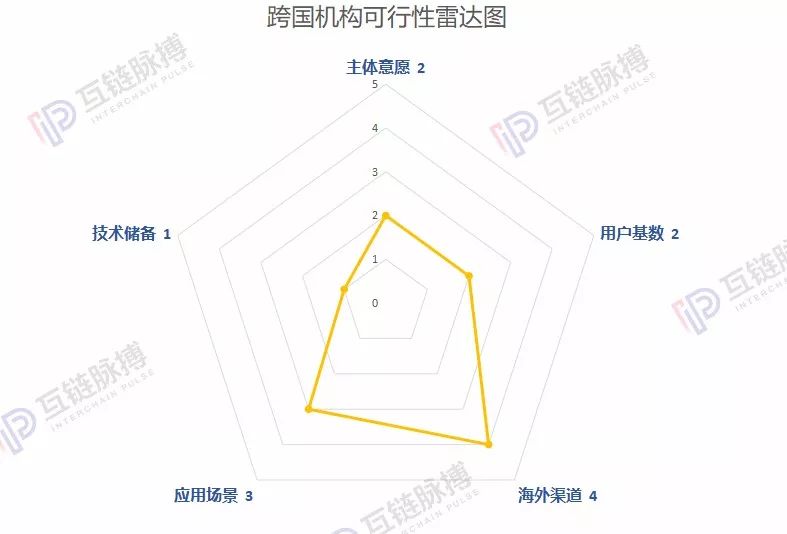
In fact, the form of multinational institutions is an idea of the inter-chain pulse for the “Chinese version of Libra”. At present, there is no active sponsor, so the mutual chain pulse assessment is less willing to the main body; compared with the central bank, large Internet companies and other organizations, the user base and technical reserve scores of the multinational organizations are lower; Channels and application scenarios are relatively wide.
If the above indicators are used to rank the four development directions of the "China Libra" of the inter-chain pulse statistics, the most feasible is the Internet giant alliance; followed by the central bank digital currency, the domestic banking alliance; It is the direction of multinational organizations.
At present, Libra has pushed the issue of digital currency to the eyes of governments and gave time for the completion of the project. In the future, no matter who is responsible for the "Chinese version of Libra", China always needs to actively explore research and give a final and satisfactory answer.
Author: Kim go car
This article is [inter-chain pulse] original, reproduced please indicate the source!
We will continue to update Blocking; if you have any questions or suggestions, please contact us!
Was this article helpful?
93 out of 132 found this helpful
Related articles
- "Elevation" Ethereum's composite network effect: digital financial stack (1)
- Bitcoin once again broke through $10,000, and the Fed’s interest rate cut is only one of the benefits.
- From the troubled USDT to Libra, how to stabilize the currency on the road to compliance
- The back of the digital currency: how to regulate? Mutual gold industry authority said so
- Bloomberg: Tether migrates to more blockchains to increase encryption market risk
- UK FCA publishes the final guide to cryptographic assets, clarifying its jurisdiction
- 5G, blockchain acceleration, the era of intelligentization, how to do the core axis of mobile payment?






